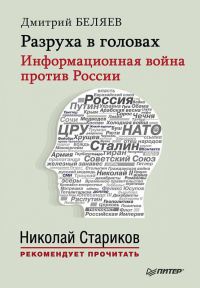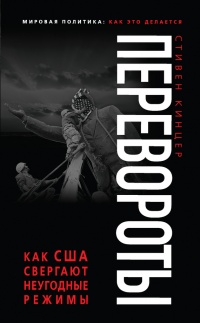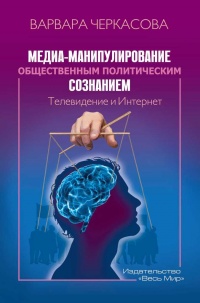Ознакомительная версия. Доступно 25 страниц из 122
Geddes, B. Why Parties and Elections in Authoritarian Regimes? Pre-sented to the Annual Meeting of the American Political Science Association, 2005.
Habermas, J. Political Communication in Media Society: Does De-mocracy Still Enjoy an Epistemic Dimension? The Impact of Norma-tive Theory on Empirical Research // Communication Theory 16, no. 4 (2006): 411–426.
He, B., and M. E. Warren Authoritarian Deliberation: The Deli-berative Turn in Chinese Political Development / In: Proceedings of the American Political Science Association Annual Meeting, vol. 28. Boston: American Political Science Association, 2008.
Hearn, K. The Management of China’s Blogosphere Boke (Blog) // Continuum 23, no. 6 (2009): 887–901.
Hearn, K., and B. Shoesmith Exploring the Roles of Elites in Managing the Chinese Internet // Javnost – The Public, Vol 11 (2004) 101–114.
Hille, Kathrin The Net Closes // Financial Times, July 18, 2009. Hoover, D., and D. Kowalewski Dynamic Models of Dissent and Repression // Journal of Conflict Resolution 36, no. 1 (1992): 150–182.
Huang, Haifeng Media Freedom, Governance, and Regime Stabi-lity in Authoritarian States. Unpublished Paper, 2008.
Huntington, Samuel P. The Third Wave: Democratization In the Late Twentieth Century. Norman: University of Oklahoma Press, 1993.
Jiang, M., and H. Xu Exploring Online Structures on Chinese Go-vernment Portals: Citizen Political Participation and Government Legitimation // Social Science Computer Review 27, no. 2 (2009): 174–195.
Johnson, Erica, and Beth Kolko E-Government and Trans-parency in Authoritarian Regimes: Comparison of National– and City-Level E-Government Websites in Central Asia. Presented at the Annual Meeting of the International Studies Association, 2010.
Johnston, H., and C. Mueller Unobtrusive Practices of Con-tention in Leninist Regimes // Sociological Perspectives 44, no. 3 (2001): 351–375.
Kaplan, Jeremy A. China Expanding Censorship to Text Messages // FOX News.com, January 20, 2010. www.foxnews.com/scitech/ 2010/01/20/china-expanding-censorship-text-messages/.
Kapstein, E. B., and N. Converse Why Democracies Fail // Journal of Democracy 19, no. 4 (2008): 57–68.
Kaufman, Stephen Bloggers in Mauritania Form a Union // America.gov, August 8, 2008. www.america.gov/st/democracy-english/2008/April/20080408172637liameruoy0.9660608.html.
Kennedy, J. J. Maintaining Popular Support for the Chinese Com-munist Party: The Influence of Education and the State-Controlled Media // Political Studies 57, no. 3 (2009): 517–536.
Kluver, R. The Architecture of Control: A Chinese Strategy for E-Go-vernance // Journal of Public Policy 25, no. 1 (2005): 75–97.
Kluver, R. US and Chinese Policy Expectations of the Internet // Chi-na Information 19, no. 2 (2005): 299.
Kluver, R., and C. Yang The Internet in China: A Meta-Review of
Research // Information Society 21, no. 4 (2005): 301–308. Kramer, Andrew E., and Jenna Wortham Professor Main
Target of Assault on Twitter // New York Times, August 7, 2009. Kristof, Nicholas D. Death by a Thousand Blogs // New York
Times, May 24, 2005.
Lacharite, J. Electronic Decentralisation in China: A Critical Analysis of Internet Filtering Policies in the People’s Republic of China // Australian Journal of Political Science 37, no. 2 (2002): 333–346.
Lagerkvist, J. The Techno-Cadre’s Dream: Administrative Reform by Electronic Governance in China Today? // China Information 19, no. 2 (2005): 189.
Latham, K. SMS, Communication, and Citizenship in China’s Information Society // Critical Asian Studies 39, no. 2 (2007): 295–314.
Levitsky, S., and L. A. Way The Rise of Competitive Authoritari-anism // Journal of Democracy 13, no. 2 (2002): 51–65.
Levy, Clifford J. Videos Rouse Russian Anger Toward Police // New York Times, July 27, 2010.
Li, S. The Online Public Space and Popular Ethos in China // Media, Culture & Society 32, no. 1 (2010): 63.
MacKinnon, R. Flatter World and Thicker Walls? Blogs, Censorship and Civic Discourse in China // Public Choice 134, no. 1 (2008): 31–46.
MacKinnon, R. Liberty or Safety? Both – or Neither // IEEE Spec-trum, May 2010.
Magaloni, B., and J. Wallace Citizen Loyalty, Mass Protest and Authoritarian Survival. Presented at the Conference on Dictator-ships: Their Governance and Social Consequences, Princeton Uni-versity, April 2008.
Markoff, J. Iranians and Others Outwit Net Censors // New York Times, April 30, 2009.
Medvedev Looks to Singapore for Electronic Efficiency // Reuters, No-vember 11, 2009.
Meng, B. Moving Beyond Democratization: A Thought Piece on the China Internet Research Agenda // International Journal of Com-munication 4 (2010): 501–508.
Miradova, M. Azerbaijan: Webcams Used for “Transparent” Munici-pal Elections // EurasiaNet.org, December 22, 2009.
Moore, M. China’s Internet Porn Reward Drives Rise in Online Erot-ica Searches // Daily Telegraph, December 7, 2009.
O’Brien, K. J. How Authoritarian Rule Works // Modern China 36, no. 1 (2010): 79–86.
Our Chip Has Come In // New Republic 200, no. 24 (1989): 7–8. Pickel, A. Authoritarianism or Democracy? Marketization as a Politi-cal Problem // Policy Sciences 26, no. 3 (1993): 139–163.
Press Conference with Secretary Gates and Adm. Mullen. Transcript.
U. S. Department of Defense, June 18, 2009.
Ramstad, E. Gulags, Nukes and a Water Slide: Citizen Spies Lift
North Korea’s Veil // Wall Street Journal, May 22, 2009. Roberts, H. China Bans the Letter “F” // Watching Technology, June 12,
2009. blogs.law.harvard.edu/hroberts/2009/06/12/china-bans-the-letter-f/.
Rodan, G. The Internet and Political Control in Singapore // Political Science Quarterly 113, no. 1 (1998): 63–89.
Rosen, S. Is the Internet a Positive Force in the Development of Civil Society, a Public Sphere, and Democratization in China? // International Journal of Communication 4 (2010): 509–516.
Rothstein, B. Creating Political Legitimacy: Electoral Democracy Versus Quality of Government // American Behavioral Scientist 53, no. 3 (2009): 311.
Rubin, M. The Telegraph, Espionage, and Cryptology in Nineteenth Century Iran // Cryptologia 25, no. 1 (2001): 18–36.
Ознакомительная версия. Доступно 25 страниц из 122
























